Hispanic Heritage Month
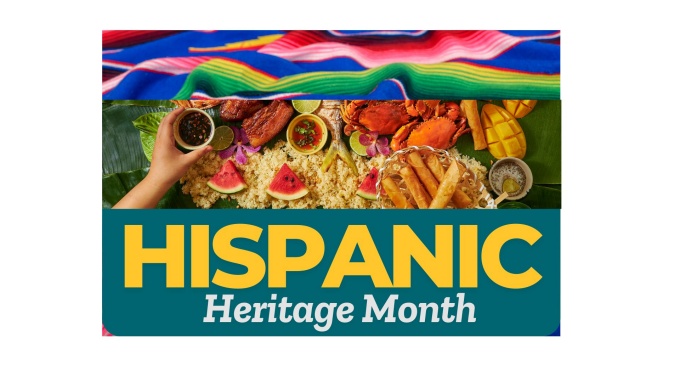
Celebremos Juntos! The Jacobs School of Medicine and Biomedical Sciences celebrates September Hispanic Heritage Month, and we invite you to honor the culture that brings warmth, solidarity and compassion to a whole new level.
Hispanic culture is so much more than fun dancing, extraordinary food and colorful landscapes. Figures of Hispanic heritage have made incredible contributions to society and medicine, making a difference in the life of others. This September, to honor our Latinx community, we’ll give you a portrait of some history, culture and prominent figures — and we’ll share with you different ways to get involved.
History of Hispanic Heritage Month
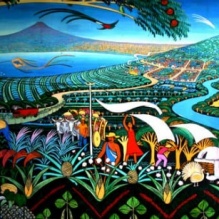
In September 1968, President Lyndon B. Johnson signed an executive order for the creation of Hispanic Heritage Week. In 1988, President Ronald Reagan extended it to a full 30 days of celebration.
But September was not randomly chosen as the month we honor Hispanic culture.
During this month, several Latin American independence days are celebrated as well — in different and extraordinary ways.
For instance:
- Guatemala lights up antorchas — representing the celebratory journey through Guatemala, Honduras, Nicaragua and Costa Rica — that announce Guatemala’s independence.
- Mexico starts cooking delicious chiles en nogada to represent the Mexican flag: chile (green), cream sauce (white) and pomegranate seeds (red).
- Chile opens fondas where people gather to dance, drink and eat with family and friends.
The United States observes the rich and vibrant Hispanic culture through festivals, shows, art, community gatherings and many more events.
National Latino Physician Day - October 1st
Health equity has been a tremendous challenge for our latino community. We invite you to support this initiative to conquer the representation we need in health sciences and medicine.
Our 2023 Latino Physicians Spotlight
The Latino Medical Student Association (LMSA) wants to honor National Latino Physician Day recognizing the outstanding work that Latino Physicians in Buffalo have accomplished, and how they made every day, a difference in our community.
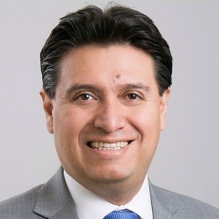
Dr. Geovanny Perez, Pediatric Pulmonology at Neighborhood Health Center - Mattina
"Being a Latino in the medical field is a unique and enriching experience that comes with both challenges and opportunities. It involves navigating a healthcare system that may have disparities in access and outcomes for Latino patients, often motivating Latino medical professionals to advocate for equitable healthcare. Ultimately, being a Latino healthcare provider means embracing cultural competence, empathy, and bridging cultural gaps to provide the best care for all patients."
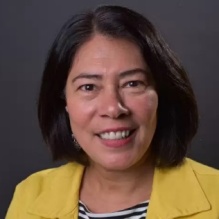
Dr Ellis Gomez, Family Medicine at Neighborhood Health Center - Mattina
"I grew up in n the South Bronx in a Puerto Rican and Dominican family. I love the Latinx community and have been working on the West Side of Buffalo for the past 30 years. I have enjoyed seeing patients, of all generations and cultural backgrounds over the years, improve their health through our efforts at Neighborhood Health Center."
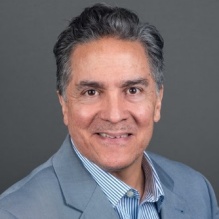
Dr. Jorge Ortiz, Transplant Surgeury at ECMC
"As the Colombian-American son of an immigrant pediatrician who served the Latino community in Queens, NY, I learned at a young age the importance of culturally competent care... During my fellowship in Miami, I learned how bad my Spanish was! Nevertheless becoming a student once again, and learning in a truly bicultural environment was a social awakening. There, many physicians were Latino. The patients felt safe and respected."
Affinity Groups
Network, reach out or simply be part of something new.
These resources within UB will help you reach a new level of cultural competency in the Hispanic community:
“You are not lucky to be here. The world needs your perspective. They are lucky to have you.”
— Antonio Tijerino, President and CEO of the Hispanic Heritage Foundation
Learn Some Spanish With Us
Need to polish your medical Spanish skills? We are here to help!
Situation
Abdominal pain
In English
Does your stomach hurt? May I examine it? Does it always hurt? Or just sometimes?
In Spanish
Le duele el estomago? Se lo puedo examinar? Le duele siempre? O a veces?
Situation
Depression
In English
Are you feeling sad? How long have you been feeling this way? Do you have a hard time sleeping at night? Thanks for sharing how you feel with me.
In Spanish
Se siente triste? Por cuanto tiempo se ha sentido asi? Tiene problemas para dormir? Gracias por compartir lo que usted siente conmigo.
Situation
Helpful and compassionate phrases
In English
How can I help you? I will try to find out. Need a translator? Do you understand? Don’t be scared. You will be OK.
In Spanish
Lo puedo ayudar? Voy a intentar averiguar. Necesita un traductor? Entiende lo que le digo? No tenga miedo. Usted va a estar bien.
Fun Facts
Hispanic vs. Latino: Not the same!
“Hispanic” refers to people who speak Spanish and/or are descended from Spanish-speaking populations. It is not the same for “Latino” (or Latina or Latinx), which refers to people who are from or descended from people from Latin America. Know the difference!
American culture
A lot of “American” culture was brought in by Hispanics: cowboy hats, names like the states of Colorado or Florida, barbecue (originated between the Spanish and the Caribbean traditions) and even the dollar sign, derived from symbols related to the Spanish currency circulating in the American colonies.
Populating the U.S.
In the United States, Hispanics have reached around 60.6 million, equivalent to 18.5 percent of the entire population of the United States. It is expected that by 2050 this number will rise to 30 percent.
Those ‘weird’ tildes
The Spanish language uses tildes in some vowels, to accent that syllable in some words. The grammar is at times complex. But did you know the weird line above the n is a tilde as well? Do you know how to pronounce it? Show your skills the next time you have the opportunity!
Honoring Our Hispanic Community at the Jacobs School
The Graduate Student Pre-Health Association honored this year some active members of our Jacobs School Community. Diversity of thought and statements supporting representation in healthcare, were brought by Beatrice Gonzalez, MS in this compilation.
Honoring Hispanic Scientists
The field of medicine and science would not be the same if it was not for the contributions that multiple Hispanics have made to their fields. Please take a moment to learn about some of the most prominent Hispanic figures we would like to honor for this year’s Hispanic Heritage Month.
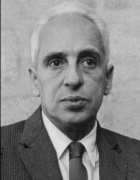
Severo Ochoa
A Spanish medical doctor, biochemist and educator. Ochoa’s research has dealt mainly with enzymatic processes in biological oxidation and synthesis and the transfer of energy. He obtained the Nobel Prize in Physiology or Medicine 1959 for his “discovery of the mechanisms in the biological synthesis of ribonucleic acid and deoxyribonucleic acid.”
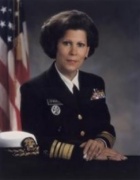
Antonia Novello
A Puerto Rican physician and public health administrator. Novello served as 14th Surgeon General of the United States from 1990 to 1993, becoming the first woman and first Hispanic to serve as Surgeon General. She also served as Coordinator for AIDS Research for Eunice Kennedy Shriver National Institute of Child Health and Human Development. In addition, Novello made major contributions to the drafting and enactment of the Organ Transplantation Procurement Act of 1984.
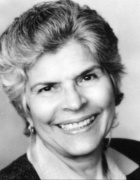
Helen Rodríguez Trías
A public health expert and women’s rights activist. Born in New York City to Puerto Rican parents, she is the first Latina director of the American Public Health Association. She became aware that unsuspecting Puerto Rican women were being sterilized and that the United States was using Puerto Rico as a laboratory for the development of birth control technology. In 1970, she founded a Committee to End Sterilization Abuse.
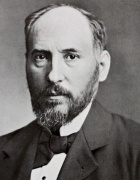
Santiago Ramón y Cajal
Santiago Ramón y Cajal was a Spanish neuroscientist, pathologist and histologist specializing in neuroanatomy and the central nervous system. He and Camillo Golgi received the Nobel Prize in Physiology or Medicine in 1906. Ramón y Cajal was the first person of Spanish origin to win a scientific Nobel Prize.
Hispanic Guide in Buffalo
Institutions
Cultural Venues
Restaurants
Our ambitions must be broad enough to include the aspirations and needs of others, for their sakes and for our own.
— Cesar Chavez
Get Involved! Participa!
These organizations contribute to help empower the Hispanic community. Support them. Get involved!
Our Hispanic Heritage Month webpage was built in collaboration with LMSA and the Student National Medical Association. Special thanks to all the individuals that contributed with ideas, information and links.